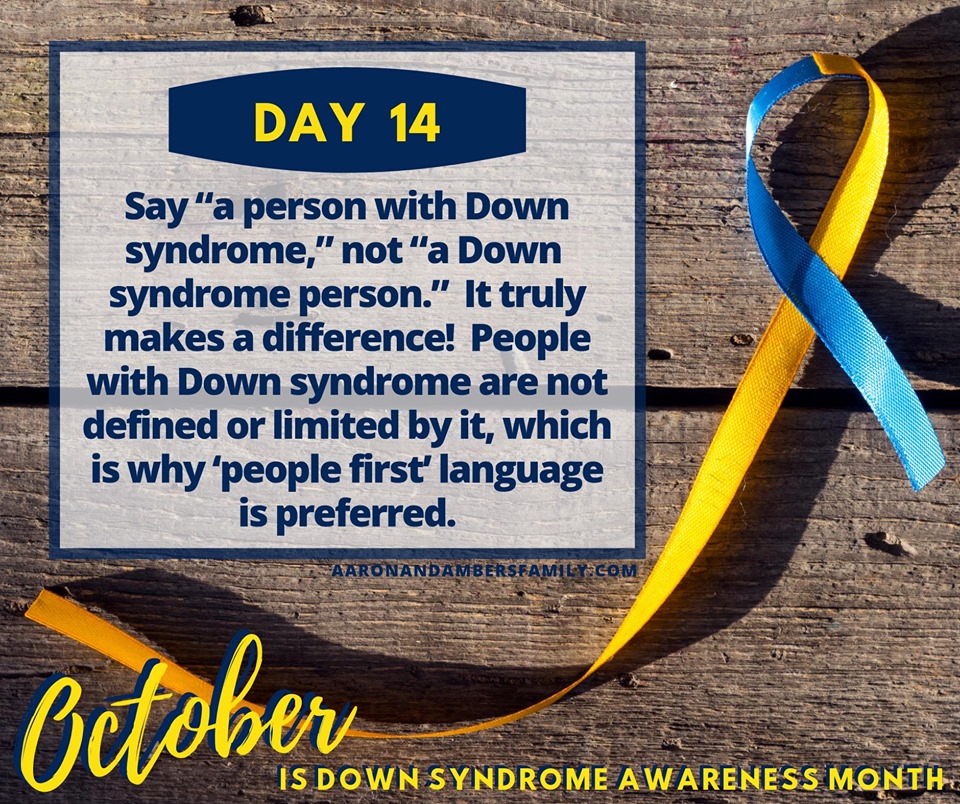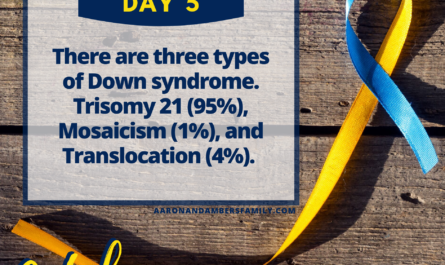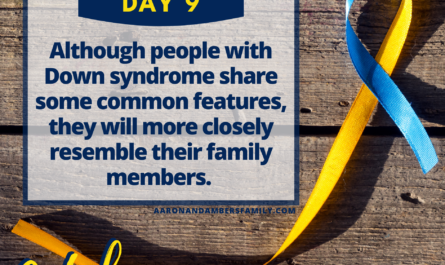“People first” language means that you should always refer to the individual first, and the disability second.
So instead of calling AJ a Downs kid, you would refer to him as a kid with Down syndrome.

Before I really put some thought into this one, I have to admit that I thought it was silly. But then I got to thinking about it, and I get it.
I don’t think that the people that say “Down’s person” or “Down syndrome kid” say it with a negative intention. But it does carry a defining connotation that doesn’t feel “nice” when you stop to think about it.
It doesn’t only apply to people with a Down syndrome diagnosis either.
“Do you see that autistic kid?”
“That’s a diabetic kid!”
“Is that a cancer kid?”
The way those are phrased may seem simple, but it puts your mind in a place of defining someone by their diagnosis and it’s stereotypes. You’re going to look for someone who looks and acts like they’re autistic, or like they have diabetes or cancer.
It’s a small thing, if you look at it simply, but it’s also a big thing. By calling someone by their disease first, it insinuates that it defines who they are.
Think about it with your own diagnoses – breast cancer, depression, high blood pressure, blindness, mentally ill.
Do you want people to refer to you as a “depressed mom,” or a “mom who has depression?
I don’t want someone to see AJ and think of him simply as “that Downs kid.” I want them to see him as a person, who happens to have Down syndrome.
Further – I would challenge you to think about whether it needs to be mentioned at all.
AJ is definitely much more a kid who loves playing with cars and giving hugs than he is a kid with Down syndrome.




